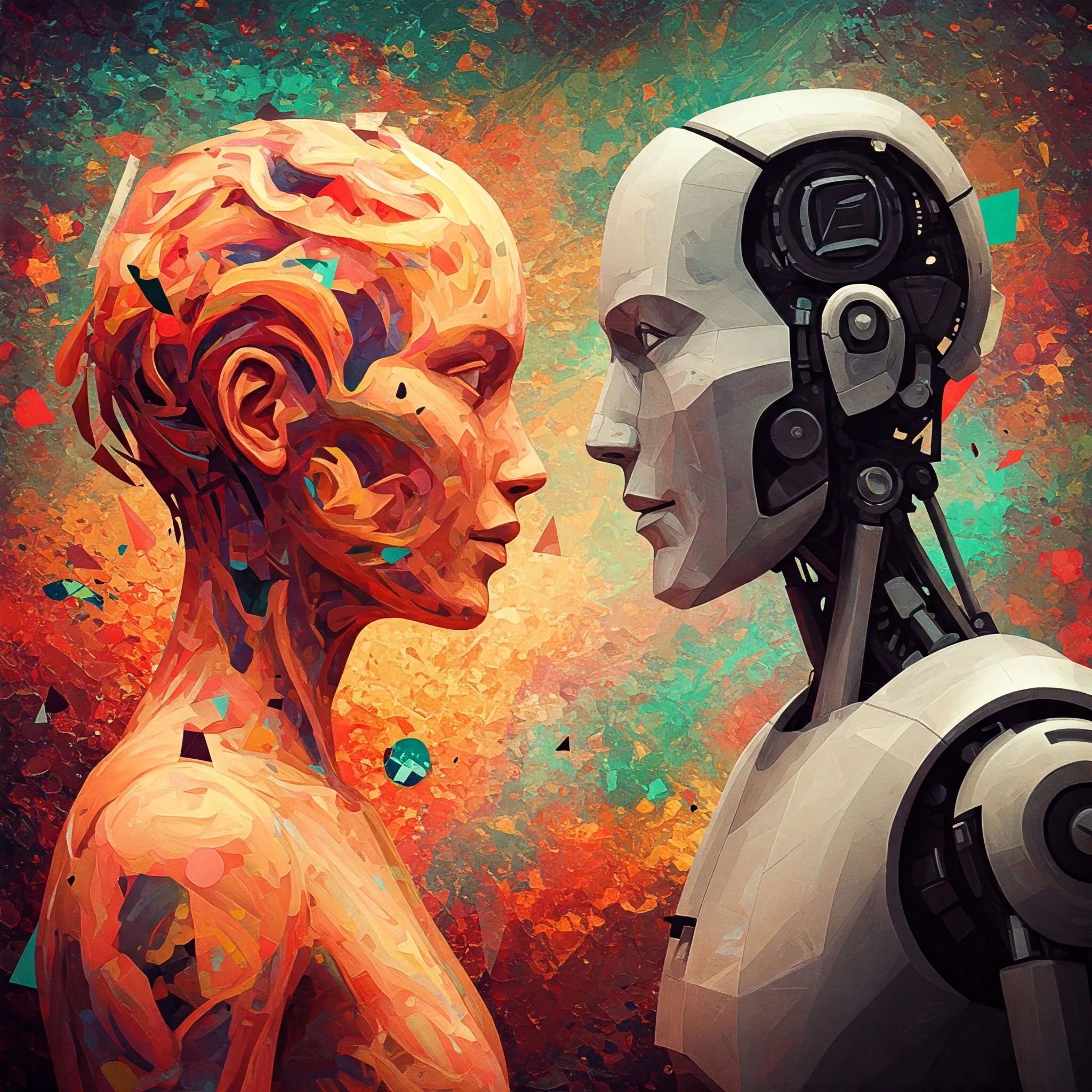We humans are wired to connect. We form friendships and fall in love. These aren’t just things we do; they’re powerful forces that shape who we are. Think about the ancient idea of Eros – it’s about that strong pull towards others, that desire to connect deeply. When we look at friendship through the eyes of two philosophers, Deleuze and Guattari, we see something really special, something that shows why even the smartest computers can’t truly experience friendship and love like we do.
Deleuze and Guattari saw friendship as more than just hanging out with people you like. They thought of it as a journey where you and your friends change each other in surprising ways. It’s not just about having things in common, but about moving forward together and becoming something new because of each other. It’s like you’re both on a path, and being together changes the direction and the landscape for both of you.
Love, for them, is similar but often more intense. It’s a powerful force that can shake things up and lead you to completely new experiences. It pulls you away from what’s comfortable and familiar and pushes you into uncharted emotional territory.
What’s really important here is that both friendship and love, the way Deleuze and Guattari saw them, are driven by desire. But they didn’t think of desire as just wanting something you don’t have. Instead, they saw it as a kind of energy that flows and connects things, constantly creating new bonds and possibilities. Friendship and love aren’t just about fulfilling a desire; they are that desire in action, the way we actively build and change our connections with others because we’re drawn to do so.
This is where AI comes in. While computers can learn a lot about how humans interact, recognize words related to friendship and love, and even try to sound like they care, they’re missing something crucial: that inner desire.
AI works based on rules and information. Its “connections” are based on code and huge amounts of data. It can spot patterns and predict what might happen next, but it doesn’t have that gut feeling, that emotional pull towards another being that drives human friendship and love. An AI can be programmed to say comforting things, but it doesn’t actually feel empathy or genuinely want to connect on an emotional level. It’s just following its programming.
The idea of “becoming-with” in friendship, where you and your friend change each other, needs a shared emotional world, a way of responding to each other that comes from deep within. AI, without its own feelings and experiences, can’t truly participate in this back-and-forth of mutual influence. Similarly, the intense, life-changing power of love, fueled by human longings and vulnerabilities, is something a machine without a body, emotions, or the fragility of being human can’t grasp.
So, when we think about the warmth of connection in friendship and love, especially the dynamic way thinkers like Deleuze and Guattari understood them, we see that they are deeply rooted in human desire and emotion. While AI can become incredibly sophisticated at processing information and even mimicking human conversation, it lacks that fundamental inner drive to connect and be transformed by those connections. True friendship and love, in all their messy, unpredictable, and deeply human glory, remain something uniquely ours, a testament to our innate need to reach out and connect with one another.

